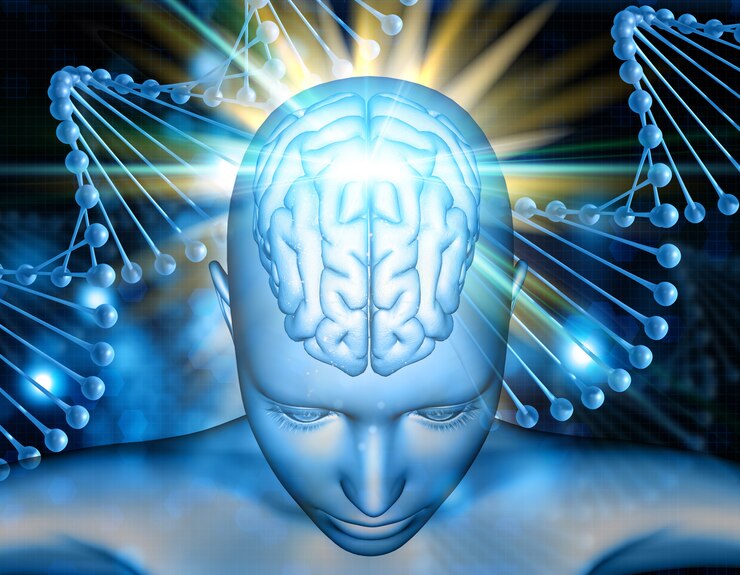The Mental Health Benefits of Testosterone: How to Break the Taboo and Talk About It

Understanding the Link between Testosterone and Mental Health

Testosterone, the primary male sex hormone, plays a crucial role in various aspects of mental health. While it is commonly recognized for its influence on physical characteristics, its impact on mental well-being should not be overlooked. Research has shown that testosterone levels can significantly affect mood, emotional stability, and overall mental functioning.
One of the key effects of testosterone on mental health is its ability to regulate mood and emotions. Studies have indicated that low levels of testosterone are associated with an increased likelihood of experiencing symptoms of depression and anxiety. Conversely, adequate testosterone levels have been linked to improved mood and reduced risk of developing these mental health conditions. Understanding this link between testosterone and mood regulation is essential in addressing mental health concerns and implementing appropriate interventions.
Furthermore, testosterone has been found to play a role in enhancing cognitive function and mental clarity. Studies have suggested that individuals with higher testosterone levels exhibit improved cognitive abilities, including better memory, attention, and problem-solving skills. These findings emphasize the significance of testosterone in maintaining optimal mental functioning and highlight its potential as a therapeutic target for cognitive disorders.
In conclusion, the relationship between testosterone and mental health is a complex and multifaceted one. Recognizing the importance of testosterone in mental well-being can lead to a better understanding and management of mental health conditions. Further exploration of the effects of testosterone on mood, cognitive function, and other aspects of mental health is necessary to fully utilize its potential in promoting overall mental well-being.
Recognizing the Importance of Testosterone in Mental Well-being

Testosterone is a hormone that is often associated with physical characteristics such as muscle mass, facial hair, and deep voice in men. However, its importance extends beyond the realm of physical traits. Testosterone plays a crucial role in mental well-being, influencing various aspects of cognition, mood, and emotional stability.
One area where testosterone has a significant impact is on mood regulation. Research suggests that low levels of testosterone can contribute to feelings of irritability, sadness, and even depression. Conversely, adequate levels of testosterone have been linked to improved mood and a greater sense of well-being. Understanding this link between testosterone and mood is key to recognizing the importance of testosterone in promoting mental health.
Another important aspect of mental well-being influenced by testosterone is emotional stability. Testosterone has been found to play a role in regulating emotions, specifically in reducing anxiety and promoting emotional resilience. Studies have shown that individuals with higher levels of testosterone tend to display lower levels of anxiety and have better coping mechanisms in the face of stressors. This highlights the significance of maintaining optimal testosterone levels for promoting emotional stability and overall mental well-being.
• Testosterone is not just important for physical characteristics, but also for mental well-being
• Low levels of testosterone can contribute to feelings of irritability, sadness, and depression
• Adequate levels of testosterone have been linked to improved mood and a greater sense of well-being
• Understanding the link between testosterone and mood is crucial for promoting mental health
• Testosterone plays a role in regulating emotions and reducing anxiety
• Higher levels of testosterone are associated with lower levels of anxiety and better coping mechanisms during stressors
• Maintaining optimal testosterone levels is significant for emotional stability and overall mental well-being
Exploring the Effects of Testosterone on Mood and Emotional Stability

Testosterone, the primary male sex hormone, plays a crucial role not only in reproductive functions but also in mental well-being. Research has shown that testosterone levels can influence mood and emotional stability in men. Several studies have found a strong correlation between low testosterone levels and increased susceptibility to mood disorders, such as depression and anxiety.
One study conducted by the Department of Psychiatry at Massachusetts General Hospital found that men with low testosterone levels were more likely to experience symptoms of depression. The researchers also discovered that higher testosterone levels were associated with greater emotional stability and a reduced risk of developing mood disorders. These findings suggest that testosterone may have a protective effect on mental health and highlight the importance of maintaining optimal levels for overall well-being.
Another study, published in the Journal of Affective Disorders, examined the effects of testosterone replacement therapy on mood in men with low testosterone levels. The results showed that testosterone supplementation significantly improved mood and reduced symptoms of depression. The researchers concluded that restoring testosterone levels to the normal range can have a positive impact on emotional well-being in men.
While the exact mechanisms through which testosterone affects mood and emotional stability are still being studied, it is believed that this hormone influences neurotransmitter systems in the brain, such as serotonin and dopamine. These neurotransmitters play key roles in regulating mood, emotions, and motivation. By modulating their activity, testosterone may promote a more stable and positive emotional state.
Understanding the link between testosterone and mental health is crucial for both healthcare professionals and individuals seeking to improve their well-being. Recognizing the potential influence of testosterone on mood can open new avenues for treating mood disorders and enhancing emotional stability. Further research is needed to explore the precise mechanisms involved and to develop targeted interventions for individuals with low testosterone levels and mood disturbances.
The Role of Testosterone in Reducing Anxiety and Depression
Testosterone, often associated with masculinity, plays a crucial role in reducing anxiety and depression. Studies have shown a direct link between low testosterone levels and increased risk of mental health disorders, including anxiety and depression. The hormone works by influencing the release of neurotransmitters in the brain, such as serotonin, dopamine, and norepinephrine, which are crucial for maintaining mood stability and emotional well-being.
Research has consistently shown that individuals with low testosterone levels are more prone to experiencing feelings of anxiety and depression. This may be due to the hormonal imbalance disrupting the brain’s chemical messaging system, leading to mood fluctuations and an increased susceptibility to negative emotions. Conversely, boosting testosterone levels has been found to alleviate symptoms of anxiety and depression, promoting a greater sense of calm and overall mental well-being.
While the relationship between testosterone and mental health is complex and multifaceted, it is clear that testosterone plays a significant role in reducing anxiety and depression. However, it is important to note that testosterone replacement therapy should only be pursued under the guidance of a healthcare professional, as accurate dosing and monitoring are essential to ensure optimal results without adverse side effects. As we delve deeper into understanding the impact of testosterone on mental health, it becomes evident that this hormone is a crucial factor in maintaining emotional stability and promoting overall mental wellness.
Certainly! Here’s the information for the “Role of Testosterone in Reducing Anxiety and Depression” presented in a table format:
| Principle | Benefits | Source Link |
|---|---|---|
| Testosterone and Mood Regulation | Testosterone may play a role in mood regulation and mental well-being | Testosterone and Mood |
| Impact on Neurotransmitters | Testosterone influences neurotransmitters like serotonin, impacting mood | Neurotransmitters and Testosterone |
| Testosterone and Anxiety | Adequate testosterone levels may have anxiolytic effects, reducing anxiety | Testosterone and Anxiety |
| Depression and Low Testosterone | Low testosterone levels may contribute to symptoms of depression | Low Testosterone and Depression |
| Testosterone Replacement Therapy (TRT) | TRT may be effective in improving mood in individuals with low testosterone | TRT and Mood Improvement |
| Interaction with Cortisol | Testosterone-cortisol balance plays a role in stress response and mood | Testosterone-Cortisol Balance |
| Gender Differences in Testosterone and Mood | Differences in testosterone levels contribute to gender variations in mood | Gender Differences in Testosterone and Mood |
Boosting Self-Confidence and Assertiveness through Testosterone
One of the key benefits of testosterone is its ability to boost self-confidence and assertiveness in individuals. Testosterone is a hormone primarily found in males, but females also have small amounts of it in their bodies. It plays a crucial role in shaping various aspects of mental well-being, including confidence levels and assertiveness.
Research has shown that higher levels of testosterone are associated with increased self-esteem and a greater sense of self-assurance. Testosterone promotes feelings of competence and assertiveness by enhancing motivation and reducing self-doubt. This hormone acts on the brain’s reward system, influencing behavior and promoting a positive mindset.
Studies have also demonstrated a correlation between testosterone levels and leadership traits. Individuals with higher testosterone tend to exhibit more dominant behaviors and are more likely to take charge in social and professional settings. This assertiveness can help individuals communicate their ideas effectively and assert their presence with confidence.
In conclusion, testosterone plays a crucial role in boosting self-confidence and assertiveness. Understanding the link between testosterone and mental health can help individuals recognize the importance of this hormone in shaping their overall well-being. By optimizing testosterone levels, individuals may experience improvements in their self-esteem, assertiveness, and overall mental well-being.
Enhancing Cognitive Function and Mental Clarity with Testosterone
Testosterone, an essential hormone found in both men and women, plays a significant role in various aspects of our health, including cognitive function and mental clarity. Research suggests that adequate levels of testosterone can have a positive impact on cognitive processes such as memory, attention, and problem-solving abilities.
One study conducted on men with low testosterone levels found that testosterone replacement therapy improved cognitive performance, particularly in tasks related to spatial ability and verbal memory. Another study observed that higher testosterone levels were associated with better performance in cognitive tests, including processing speed and visual-spatial skills.
While the exact mechanisms behind testosterone’s effect on cognitive function are still being explored, it is believed that testosterone receptors in the brain play a role in promoting neural growth and enhancing neurotransmitter activity. Furthermore, testosterone may also play a role in protecting brain cells from oxidative stress, which can contribute to cognitive decline.
It is important to note that testosterone levels fluctuate naturally throughout the lifespan, and maintaining optimal levels is crucial for overall health, including cognitive function. It is always recommended to consult with a healthcare professional who can assess your individual situation and provide appropriate guidance.
Examining the Impact of Testosterone on Stress Management
Stress is a common part of our daily lives, and managing it effectively is crucial for maintaining overall well-being. Interestingly, research suggests that testosterone may play a role in stress management. Testosterone is a hormone primarily known for its role in male reproductive health, but it also influences various aspects of mental and physical health. When it comes to stress, studies have shown that testosterone levels can influence an individual’s response to stressors and their ability to cope with them.
One way testosterone may impact stress management is through its effects on the hypothalamic-pituitary-adrenal (HPA) axis, which is responsible for regulating our body’s stress response. Research has found that testosterone can modulate the HPA axis by reducing the release of stress hormones such as cortisol. This hormonal regulation may contribute to decreased physiological responses to stress, resulting in a more balanced stress response. However, it is important to note that the relationship between testosterone and stress is complex, and more research is needed to fully understand the mechanisms involved.
Improving Sleep Patterns and Quality with Testosterone
Testosterone, a hormone primarily associated with male reproductive function, plays a crucial role in various aspects of physical and mental health. One area where testosterone has been found to have a significant impact is sleep patterns and quality. Studies have shown that testosterone levels can affect sleep architecture, duration, and overall sleep quality in both men and women.
Research indicates that low testosterone levels can contribute to sleep disturbances, such as insomnia, restless sleep, and frequent awakenings during the night. Conversely, adequate levels of testosterone have been associated with better sleep efficiency, decreased sleep latency (the time it takes to fall asleep), and increased slow-wave sleep, which is essential for restorative rest.
Furthermore, testosterone may also play a role in regulating sleep-related disorders such as sleep apnea, a condition characterized by interrupted breathing during sleep. Sleep apnea has been found to be more prevalent in individuals with low testosterone levels, and testosterone replacement therapy has shown promise in improving symptoms and reducing the severity of sleep apnea.
It is important to note that the relationship between testosterone and sleep is complex, with various factors influencing this interplay. Factors such as age, body composition, and overall health can impact testosterone levels and subsequently affect sleep patterns. Additionally, sleep itself can also influence testosterone production, highlighting the bidirectional relationship between sleep and testosterone.
In conclusion, optimizing testosterone levels may have a positive impact on sleep patterns and quality. However, further research is required to fully understand the mechanisms underlying this relationship, as well as the potential benefits of testosterone replacement therapy in addressing sleep-related issues. It is always recommended to consult with a healthcare professional who can provide personalized guidance and evaluate the individual’s specific needs before considering any interventions related to testosterone and sleep.
Promoting a Positive Body Image and Self-esteem with Testosterone
Building a positive body image and enhancing self-esteem are crucial aspects of mental well-being. Testosterone, the primary male sex hormone, plays a significant role in promoting these positive outcomes. Research has shown that testosterone can contribute to the development of lean muscle mass, which can help improve body composition and increase feelings of physical strength and attractiveness.
Additionally, testosterone has been linked to an increase in self-confidence and assertiveness. Studies have suggested that higher levels of testosterone in individuals are associated with greater self-assurance and a higher level of comfort in social situations. This boost in self-confidence can positively impact body image and self-esteem, leading to an overall improvement in mental health.
It is important to note that testosterone levels can naturally decline with age, and this decline may have adverse effects on body image and self-esteem. However, hormone replacement therapy (HRT) may offer a solution for individuals experiencing low testosterone levels. HRT can help restore testosterone to optimal levels, potentially enhancing body image and self-esteem.
While testosterone can play a role in promoting a positive body image and self-esteem, it is crucial to approach the topic with caution. It is essential to consult with healthcare professionals, such as endocrinologists or urologists, who specialize in hormone therapy, to ensure that any interventions are tailored to an individual’s specific needs and health status. With the right guidance and support, testosterone therapy may offer a potential avenue for individuals seeking to improve body image and self-esteem as part of their overall mental well-being.
Examining the Relationship between Testosterone and Social Skills
Social skills are crucial for navigating and thriving in social interactions. They encompass a range of abilities that allow individuals to communicate effectively, build and maintain relationships, and adapt to various social contexts. While the development of social skills is influenced by multiple factors, including cognitive, emotional, and environmental factors, emerging research has shed light on the potential role of testosterone in shaping these skills.
Testosterone is a hormone primarily associated with masculine characteristics and reproductive function. However, recent studies have suggested that it may also play a role in the development and expression of social skills. Research has found correlations between testosterone levels and certain social behaviors, such as assertiveness, dominance, and aggression. These behaviors, when properly regulated, can contribute positively to interpersonal relationships and social interactions. Nonetheless, it is important to note that these correlations do not imply causation, and the relationship between testosterone and social skills is complex and multifaceted. Therefore, further research is needed to fully understand the mechanisms underlying this relationship and the potential implications for individuals with different testosterone levels.
It is also worth considering that social skills are influenced by a myriad of other factors, such as upbringing, social experiences, and personality traits. These factors interact with testosterone levels to shape an individual’s social skills, and it is often difficult to isolate the specific contribution of testosterone alone. Additionally, the expression of social skills is highly context-dependent, further complicating the understanding of the relationship between testosterone and social abilities. As such, it is important to approach this topic with a nuanced perspective, considering the multiple factors that contribute to the development and expression of social skills.
In conclusion, while there is evidence suggesting a potential link between testosterone and social skills, the relationship is far from clear-cut. Testosterone may play a role in certain social behaviors, but its influence is likely intertwined with various other factors. Further research is needed to elucidate the mechanisms underlying this relationship and to understand the potential limitations and implications for individuals with different testosterone levels. By gaining a deeper understanding of this complex relationship, we can better support individuals in developing and optimizing their social skills.
Addressing Concerns and Misconceptions about Testosterone and Mental Health
Testosterone and its role in mental health have been the subject of much discussion and speculation. However, there are several concerns and misconceptions surrounding this topic that need to be addressed. One common misconception is that testosterone only affects physical health and has no impact on mental well-being. This belief is not based on scientific evidence and overlooks the intricate connection between the body and mind.
Another concern revolves around the idea that testosterone therapy can lead to aggressive behavior and mood swings. While it is true that imbalances in hormone levels can affect emotions, the effects of testosterone on mental health are complex and individualized. It is important to note that the administration of testosterone is done under the supervision of healthcare professionals who carefully monitor dosage and tailor treatment plans to each patient’s needs.
Addressing these concerns and misconceptions is crucial for a comprehensive understanding of the link between testosterone and mental health. By relying on scientific evidence and dispelling myths, we can foster more informed discussions around this topic and promote the well-being of individuals seeking to optimize their mental health through hormone replacement therapy.
Supporting Mental Health through Hormone Replacement Therapy
Hormone replacement therapy (HRT) has been shown to have a positive impact on mental health in individuals with imbalances in testosterone levels. Testosterone plays a crucial role in maintaining mental well-being, and when levels are low, it can lead to various emotional and psychological symptoms. By restoring testosterone levels through HRT, individuals may experience improvements in mood, emotional stability, and overall mental health.
Research has indicated that low levels of testosterone can contribute to the development of anxiety and depression. Studies have shown that HRT can help reduce anxiety symptoms, such as excessive worry and restlessness, and alleviate the symptoms of depression, including low mood, loss of interest, and feelings of worthlessness. By restoring testosterone levels within the optimal range, HRT can potentially support individuals in managing these mental health challenges and improving their quality of life.
It is important to note that HRT should be approached with caution and under the guidance of a qualified healthcare professional. Every individual is unique, and their hormone levels need to be carefully assessed before starting any hormone therapy. It is essential to undergo regular monitoring to ensure that testosterone levels are maintained within the appropriate range, and adjustments to the treatment plan may be necessary based on individual response and tolerance.
By addressing testosterone imbalances through hormone replacement therapy, individuals may have the opportunity to support their mental health and enhance their overall well-being. However, further research is needed to fully understand the long-term effects and potential risks of HRT on mental health.
Tips for Discussing Testosterone and Mental Health Openly and Respectfully
Open communication is key when discussing testosterone and mental health. To have a respectful and productive conversation, it is important to approach the topic with empathy and understanding. Here are some tips to help guide your discussion:
1. Create a safe and non-judgmental space: Start by emphasizing that the conversation is a judgment-free zone. This will encourage the person to feel comfortable opening up and sharing their thoughts and experiences.
2. Use active listening skills: Practice active listening by giving your full attention to the person speaking. Maintain eye contact, nod, and provide verbal cues to show that you are engaged in the conversation. Avoid interrupting and allow the person to express their thoughts and feelings without judgment.
3. Educate yourself: Before discussing testosterone and mental health, take the time to educate yourself about the topic. Familiarize yourself with the relevant scientific literature, studies, and clinical findings. This will enable you to have a more informed conversation and provide accurate information.
4. Be empathetic and validate emotions: Understand that discussing testosterone and mental health can be sensitive for some individuals. Validate their emotions and experiences, acknowledging that their feelings are valid and important. Empathy and understanding can go a long way in building trust and facilitating a productive discussion.
5. Ask open-ended questions: Encourage the person to share their thoughts and feelings by asking open-ended questions. This allows for a more in-depth conversation and allows the person to express their opinions and concerns freely.
Remember, discussing testosterone and mental health openly and respectfully is crucial to promoting understanding and seeking appropriate support. By creating a safe and empathetic environment, you can facilitate a productive conversation that can lead to meaningful insights and help for those in need.
What is the link between testosterone and mental health?
Testosterone plays an important role in mental well-being by influencing mood, emotional stability, cognitive function, stress management, self-confidence, and more.
How does testosterone affect mood and emotional stability?
Testosterone helps regulate mood and emotional stability. Higher levels of testosterone are associated with positive mood, while low levels may contribute to mood swings and emotional instability.
Can testosterone reduce anxiety and depression?
Yes, testosterone has been found to have a positive impact in reducing symptoms of anxiety and depression. It can help improve mood and alleviate symptoms in individuals with low testosterone levels.
Does testosterone boost self-confidence and assertiveness?
Yes, testosterone has been linked to increased self-confidence and assertiveness. It can help individuals feel more empowered, motivated, and willing to take on challenges.
Can testosterone enhance cognitive function and mental clarity?
Yes, testosterone has been shown to improve cognitive function and mental clarity. It can enhance memory, attention, and focus, leading to improved overall cognitive performance.
What is the impact of testosterone on stress management?
Testosterone plays a role in stress management by reducing the physiological response to stressors. Adequate testosterone levels can help individuals better cope with stress and maintain a sense of calm.
Does testosterone improve sleep patterns and quality?
Yes, testosterone can improve sleep patterns and quality. Proper levels of testosterone support healthy sleep patterns, leading to better rest and improved overall well-being.
Can testosterone promote a positive body image and self-esteem?
Yes, testosterone can promote a positive body image and self-esteem. It can contribute to the development of lean muscle mass, reduce body fat, and enhance overall physical appearance.
How does testosterone impact social skills?
Testosterone has been linked to the development of social skills. Adequate testosterone levels can contribute to increased confidence, assertiveness, and social dominance.
What are some common concerns and misconceptions about testosterone and mental health?
Common concerns and misconceptions include the belief that testosterone therapy is only for men, that it causes aggressive behavior, and that it is a cure-all for mental health issues.
How can hormone replacement therapy support mental health?
Hormone replacement therapy (HRT) can be used to address hormonal imbalances, including low testosterone levels. By restoring testosterone to appropriate levels, it can support mental health and well-being.
Any tips for discussing testosterone and mental health openly and respectfully?
When discussing testosterone and mental health, it is important to approach the topic with empathy, respect, and openness. Listen actively, ask questions, and avoid making assumptions or judgments.






